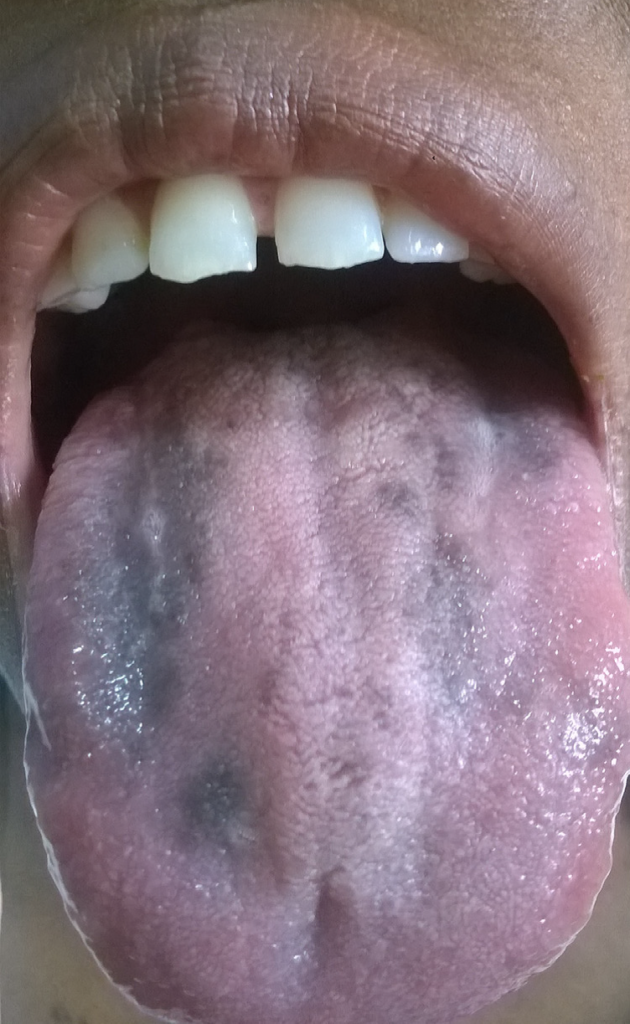Between immune response and oral health in HIV diagnosis

Oral health is one the most important aspects of healthcare. Many sicknesses’ symptoms show on the oral region, including the lips. For instance, a blister in the mouth is associated with fever or cold; while a red lips may be caused by an infection, allergy, or an irritant.
According to experts, oral ill health can manifest in chronic dry mouth, blisters, oral thrush, oral wart, rough patches on the tongue, bone loss around the teeth, dental caries cancer wart.
One area of health some researchers have linked to oral health is HIV.
According to Dr Elizabeth Oluwatoyin Abe of the Department of Oral Pathology/Oral Medicine, University College Hospital, Ibadan and her team of researchers, people living with HIV are at risk of oral health problem because their immune system has been compromised.
“HIV usually attack type of T cell known as CD4+ cells which is part of the white blood cells.
“These cells are essential part of immune system that helps the body to fight infection thereby, reducing resistance to diseases.
“Lesions in the mouth region are among the early signs of HIV infection, and for individuals with unknown HIV status, they may indicate the need for HIV screening,’’ they said in a study on Relationship between immunise response and oral health of diagnosed HIV sero-positive patients.
The study was published in Oral Surgery, Oral Medicine, Oral Pathology and Oral Radiology journal.
Other scholars involved in the study are: Dr Akinyele Olumuyiwa Adisa of the Department of Oral Pathology/Oral Medicine, University College Hospital, Ibadan, and Dr Bukola Folasade Adeyemi of the Department of Oral Pathology/Oral Medicine, University College Hospital, Ibadan.
Others are Olutosin Alaba Awolude of the Department of Obstetrics and Gynaecology, University College Hospital, Ibadan, and Dr Foluso John Owotade of the Department of Oral Pathology/Oral Medicine, Obafemi Awolowo University Teaching Hospital Complex, Ile-Ife, Osun State.
On Oral Melanotic Hyperpigmentation (OMH), the researchers say oral melanotic hyperpigmentation is the production of pigment in the mouth ranging from shades of purple to brown and black.
They say it has been suggested as a marker of immune suppression and is associated with low CD4 +.
This condition, they said is not only limited to HIV positive patients but also with people with low CD4 + count.
“Low CD4 + count also cause pigmentation of nails. The prevalence of HIV-associated OMH varies in different parts of the world and between different ethnic and racial groups.
“This variation is most probably due to genetic, environmental, biochemical, pathologic, or immunologic factors.
“Studies show that more than 22.8 per cent of HIV/AID patients have OMH. Reports from Nigeria and Ghana showed that it is the second and third most common lesion in HIV/AID patient respectively, especially in newly diagnosed patients.
“OMH in patients with HIV has been attributed to the use of antifungal agents or antiretroviral drugs, whereas some have reported that HIV has ability to induce imbalance of the protein known as cytokine which activates production of pigments 3’’, the scholars said.
They sourced their data collected from newly diagnosed HIV-seropositive patients attending the HIV outpatient clinic of the Infectious Diseases Institute of the College of Medicine, University of Ibadan (UI)/University College Hospital, Ibadan.
On the effect of HIV on immune system, the experts said the result showed that OMH affected the tongue of 75.5 per cent of the participant while 25.7per cent had in multiple sites.
They said among all the study participants, the CD4 + count ranged between 5 and 1,612 cells/mm3 with a mean value of 247.73 and 252.91cells/mm3.
According to them, 33 (94.3 per cent) of the participants with HIV-OMH and 23 (65.7 per cent) of those without OMH had a CD4 + count_350 cells/mm3.
They explained that the CD4 + count was lower in HIV-OMH patient than HIV without OMH showing that low CD4 + count was associated with low immunity which might affect the function of cytokine.
The researchers said severe suppression of immune response (CD4 + count, 200 cells/mm3) was found in over half (52.9 per cent) of the study participants, being greater among the cases than among the control group.
“Proinflammatory cytokines, such as tumor necrosis factor-alpha (TNF-α) and interleukin-6 (IL-6) promotes inflammation and tissue destruction.
“A high level of IL-6 and a low level of TNF- α were noted among the study participants, regardless of their status as cases or control subjects.
“Likewise, the majority of the study participants with a CD4 + count of 350 cells/mm3 had high levels of IL-6 and low levels of TNF-α.
“Therefore, differences in the cytokine levels may be due to the severity of immunosuppression and corresponding cytokine dysregulation, thus producing clinical manifestations of HIV/AIDS, including OMH, they observed.
On the outcome of the experiment, the researchers said the experiment concluded that there was a significant association between HIV-OMH and severe suppression of immune response in newly diagnosed HIV-seropositive patients.
On Oral, they said lesions may be influenced by geographical location and genetic makeup.
“It is therefore suggested that more studies should be done to verify classification of lesions in Black individuals and not just assumed to be same across the globe because OMH is also influenced by production of melanin’’, they said.
Further studies have also explained why close attention should be paid to oral health because of its link to HIV.
Iain Chapple and John Hamburger in study found that“ the oral cavity is an important and frequently undervalued source of diagnostic and prognostic information in patients with HIV disease“.
The research was on: “The significance of oral health in HIV disease“ published Sexually Transmitted Infections on the stable of British Medical Journal (BMJ).
Similarly, Soheila Shaghaghian and a team of researchers on “Oral health status of patients infected with human immunodeficiency virus and related factors, Iran: a cross-sectional study“ published in BMC Oral Health found oral health status of HIV-infected persons unsatisfactory. (NANFeatures)









